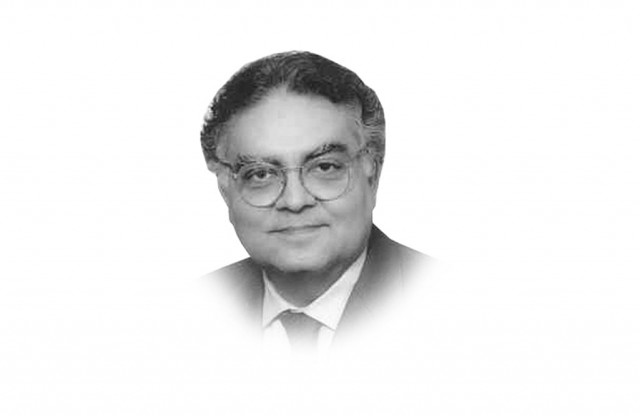The Bhutto charisma
Dreams of renewal, of transformation; dreams of a moment when the stasis of fear would give way to a joyous dance

The images that resonate as historic possibilities in the psyche of the people suggest that the charismatic individual has an incisive insight, an infallible efficacy, an inner power through which she/he can grasp the most fertile dreams of the spectators and then through collective effort actualise them: Dreams of renewal, of transformation; dreams of a moment when the stasis of fear would give way to a joyous dance, when a new consciousness and a new society would take shape. Thus, the charismatic politician is essentially a Promethean hero. She/he embodies the possibility of enhancing life, of breaking away from the existing establishment.
While both Zulfikar Ali and Benazir Bhutto stood apart from the people at one level, yet they were able to reach into their inner most longings. Intimate contact between the charismatic politician and the audience is achieved indirectly through the mediating device of symbolic gestures. Let us see how this was achieved by Mr Zulfikar Ali Bhutto.
The dress bearing and the design of the stage in subcontinental jalsas had traditionally been a device of psychologically distancing the audience from the speaker. The speaker normally gave a spruce look, speaking in elegant Urdu or Oxbridge English. The stage was usually a raised platform with a stylised setting. These neatly structured elements of stage design and language use emphasised the distance of the speaker from an audience that was unkempt and chaotic.
Mr Bhutto undermined this psychological distance through a new grammar of gestures: (i) During his speech he took off his coat, then progressively loosened his tie and unbuttoned his shirt sleeves. He was thus demolishing the image of the conventional speaker and symbolically acquiring the unkempt appearance of the audience. (ii) His language did not have the streamlined sophistication of the traditional politician, but was often grammatically incorrect, fragmented and laced with earthy epithets from the local dialect. As he built up to an emotional crescendo, his voice often cracked and halted in mid-sentence. Through these devices Mr Bhutto was sending the coded message that he was not delivering a speech but rather participating in a collective emotion. (iii) He achieved audience participation through rhetorical questions and rhythm. For example, he often posed a question and let the audience answer it in a single joyous roar.
There is little doubt that Mr Bhutto’s charisma lost its sheen during 1973-77. However it is equally certain that his last ordeal served to regenerate his charisma: This time as a martyred hero. His period in the death cell created the image of a prince sacrificing his body in slow degrees for the people: The broken wire mesh of his bare bed drawing blood from his back; the slow loss of body weight due to an untended stomach ailment. His weakened body was sustained by a fierce spirit of defiance: He continued to smoke his customary cigar and sip his coffee as his life ebbed away. Before the curtain went up, Bhutto’s body, shorn of its flesh as much as of its sins, stood in stark silhouette on the horizon of public consciousness. A flawed politician by the form of his death had passed into folk myth as a faqir.
So it was for Benazir Bhutto. Reviled by her detractors as corrupt, she redeemed herself by consciously sacrificing her life for the freedom of the people. After the harsh sound of gun fire, her delicate white dupatta fell silently like a lotus leaf on the eternal lake. She, too, like her father, had entered what Bhutto called the ‘heart of history’.
Published in The Express Tribune, April 13th, 2011.















COMMENTS
Comments are moderated and generally will be posted if they are on-topic and not abusive.
For more information, please see our Comments FAQ